Every now and then, it’s worth rereading the now-classic business book, “The Challenger Sale: Taking Control of the Customer Conversation.” The authors make it clear that value selling can help every sales rep perform like a Challenger by adopting the attributes discussed in this article.
Attributes of a Challenger
Companies striving to hire Challengers look for varying degrees of the top five “statistically significant” attributes:
- Offers the customer unique perspectives
- Has strong two-way communication skills
- Knows the individual customer’s value drivers
- Can identify economic drivers of the customer’s business
- Is comfortable discussing money
When these skills are cultivated and used consistently, the purchase decision becomes abundantly clear and makes it easier for sales to influence buyers in your favor. A strong sales team can also benefit from having value selling tools to enhance their effectiveness and improve sales success.
1. Offers the Customer Unique Perspectives
Companies can see their situation more objectively with metrics that measure their performance. The challenge is that it’s hard for companies to benchmark themselves against other companies. That’s why value selling begins with a good assessment of your prospect’s business challenges.
Consider using that assessment to survey your prospects, and then use that data as a benchmark. If you can show your prospect where they stand as compared to other companies, you can really open their eyes and offer a perspective that they may not have had otherwise.
2. Has Strong Two-Way Communication Skills
This skill can be hard to teach. It’s human nature to ramble on a sales call without giving the prospect sufficient time to talk. When a rep works through an assessment with their prospect, they are more inclined to ask questions, listen to responses, and collect the information they need.
The next step after completing the assessment is to show your prospect the quantifiable results your solution can deliver. This too requires asking questions and collecting and confirming answers to accurately calculate and demonstrate results.
Finally, to generate a strong and persuasive business case, the rep needs to confirm the information collected from everyone involved in the purchase decision, and gather more information to determine the solution and pricing you will be offering. By incorporating assessments, value determination, and business case development into your sales process, you can reinforce the importance of two-way communication and strengthen the required communication skills.
3. Knows the Individual Customer’s Value Drivers
Conducting a thorough assessment will help your rep identify the customer’s value drivers and determine whether their needs align with what your solution delivers. If you determine that your offering is not a good fit, the rep can respectfully walk away from selling a solution that’s unneeded or unnecessary at the current time.
Chances are the prospect will respect the rep’s honesty, increasing the likeliness that the buyer will come back when they are ready. And the rep can better use this time on a sales opportunity that is more likely to close.
4. Can Identify Economic Drivers of the Customer’s Business
This is the real sweet spot of value selling. A well-researched assessment reveals the prospect’s individual value drivers, from which you can determine the economic drivers your solution delivers. Your reps can really focus on the value and economic drivers when discussing how your solution addresses their business challenges, especially when presenting your business case for budget approval.
5. Is Comfortable Discussing Money
Few people like talking about money, including sales reps. But being comfortable discussing money is a skill every good sales rep needs to have.
The best way to build comfort and confidence is to lead with the potential value of your solution. When you talk about value before presenting the actual cost to the customer, the customer hears the upside first so you can more easily defend the price to value, if necessary.
That’s why presenting a business case with every proposal is so important. It clarifies solution value as well as cost and allows your reps to focus on total ROI. If you can put these capabilities in your reps’ hands, it will make it much easier for them to talk about money.
Conclusion
Not every rep you hire will be a Challenger, but incorporating value selling tools and resources into your sales process gives every rep the opportunity to strengthen the attributes that define the Challenger.
Using assessments to benchmark your prospects can help reps provide a unique perspective that allows your prospect to see how they are performing against their peers. Requiring reps to offer an initial determination of your solution’s value will create an awareness of the prospect’s value drivers. And including a business case with every sales proposal will ensure that reps identify the economic drivers that will make the money discussion easier.
Adopting a comprehensive value selling process will help every rep perform more like a Challenger.

Resources
Connect with Darrin Fleming on LinkedIn.
Join the Value Selling for B2B Marketing and Sales Leaders LinkedIn Group.
Visit the ROI Selling Resource Center.














